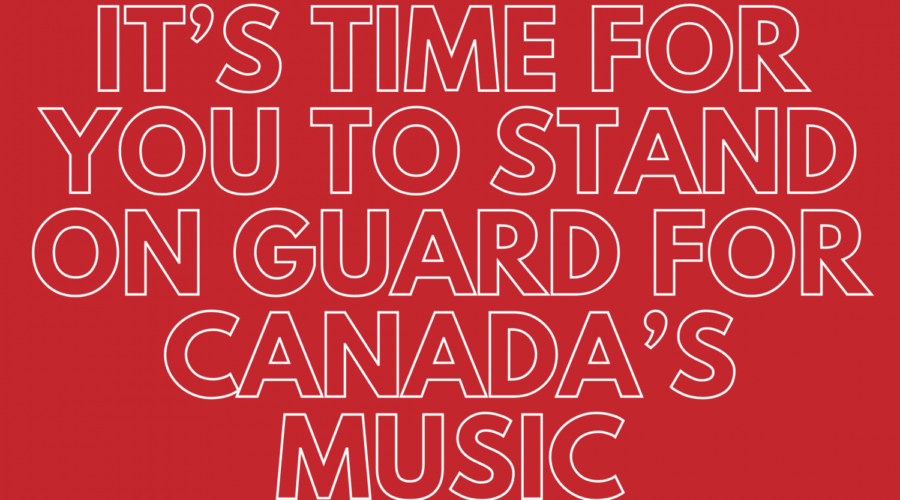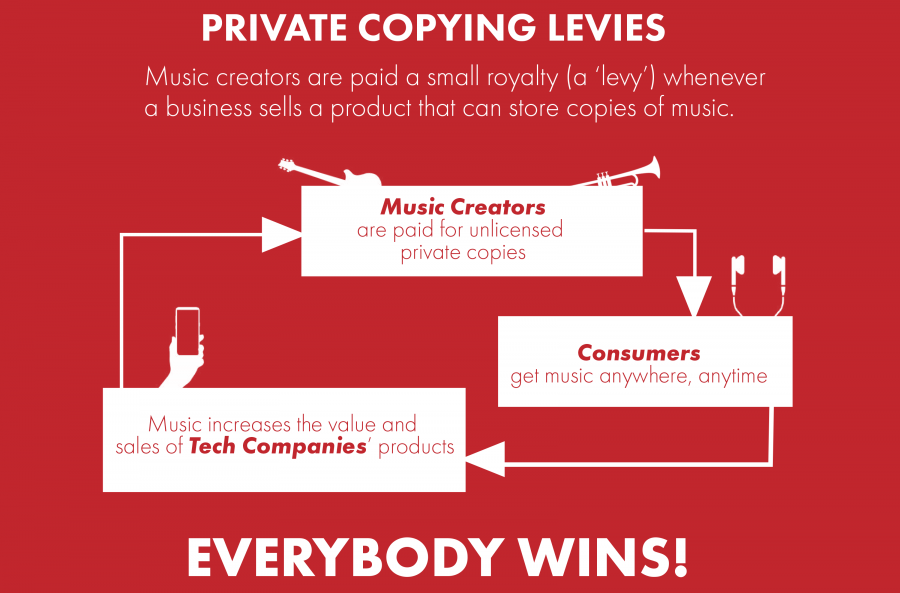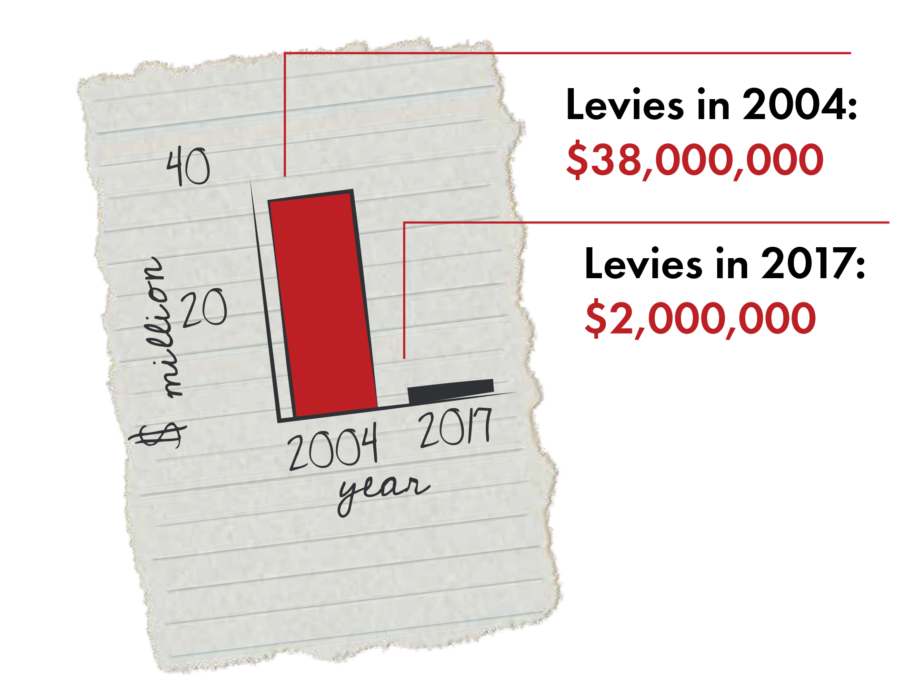
Support For A Technologically-Neutral Private Copying Levy
ACTRA RACS has distributed private copying royalties to performers for nearly 20 years. Over that period, we’ve seen the royalty payments associated with the private copying levy diminish dramatically and, as a consequence, deprive performers of much-needed income. The time to raise our voices and call for change has come.
Our colleagues at the CPCC (Canadian Private Copying Collective) have launched a campaign to raise awareness around their proposal to fix private copying by creating a Technologically-Neutral Private Copying Regime. ACTRA RACS fully supports the CPCC and this proposal and we want to provide our members with an background and better understanding of what is at stake. Below you’ll find an overview of the private copying levy, its future and few ways that you can lend your support to the fight.
In the meantime, we will continue to advocate alongside our friends at the CPCC to ensure that the private copying regime is fixed and that performers are fairly compensated for the use of their work.
What is Private Copying?

A “private copy” is a copy you make of your music collection for your own personal use, anywhere, anytime. Private copying presents a unique challenge: technology keeps making it easier for consumers to copy music, but it is not always possible for music rights-holders to authorize, prohibit or monetize those copies.
In recognition of this challenge, Canada’s Copyright Act was changed in 1997 to allow Canadians to copy music onto audio recording media for their private use. In return, the private copying levy was created to remunerate recording artists, songwriters, composers, music publishers and labels for that use of their work.
How it works: rights-holders are paid a small royalty (a ‘levy’) whenever a business sells a product that can store copies of music. Consumers get their music anywhere, anytime; music drives up the value and sales of tech companies’ products; and music creators get paid for unlicensed private copies. Everybody wins!
How Have The Royalties Been Affected Over The Years?

For many years since its creation, the private copying regime was an important source of royalties, generating a total of over $300 million for over 100,000 music rights-holders. Unfortunately, the regime has been limited since 2008 to a single medium, now virtually obsolete: recordable CDs. That means royalties have plummeted from $38 million in 2004 to $1.1 million in 2019 – even as annual copying activity more than doubled.
You may think that nobody makes copies of their music collections for private use anymore, because we’re all just streaming now. This couldn’t be further from the truth. The reality is that Canadians still make billions of copies of their existing music collections, for listening offline. What has changed is simply that those copies aren’t on cassette tapes, they’re on phones and tablets. And guess what? Only half of those copies are paid for through licensed music services.
Our most recent research shows that there are 5.95 billion tracks of music currently stored on Canadians’ phones and tablets, and that half of those copies are unlicensed. Unlicensed, and no levy – that is a lot of revenue out of the pockets of creators and their music company partners. The Copyright Act has not kept pace with technology, leaving rights-holders unpaid. Shouldn’t every copy count?
Proposed Changes To Fix The Private Copying Regime
With minimal revisions to the Copyright Act, the private copying regime would be restored to what it was originally intended to be – a flexible, technologically-neutral system that monetizes private copying that cannot be controlled by rights-holders.
Specifically, our proposed amendments to the Copyright Act would allow the regime
to apply to both audio recording media and devices. CPCC also proposes minor revisions to the Act to clarify that this exception to copyright infringement does not extend to offering or obtaining music illegally, whether through an unlicensed online service, stream-ripping, or by stealing an album from a store – such activity remains illegal. The private copying regime is for copying that cannot be controlled.
Passage of these amendments would make it possible for the CPCC to ask the Copyright Board of Canada to approve a levy on the smartphones and tablets where Canadians now make their private copies. The Copyright Board would ultimately determine the value of any approved levy on devices, but CPCC’s proposal is a levy that is a small fraction of the cost of a device, comparable to the average levy payable on a smartphone in Europe: around CDN$3, or the price of a cup of coffee. That would generate about $40 million in royalties per year.
With help from supporters, the CPCC have been asking the Government to amend the Copyright Act to ensure that the private copying regime is made technologically neutral. Moving forward with this legislative change will create a true marketplace solution for the music industry, which will help to restart the Canadian music economy as it recovers from the COVID-19 pandemic.
Right now, the Government is reviewing copyright reform legislation to be tabled imminently, acting on what they heard in the recent Parliamentary Review of Copyright. We need your help to ensure that private copying reform is high on their agenda.
HOW CAN YOU HELP?
- Let Minister Guilbeault, Minister Bains, and your local MP know that you want to see a tech-neutral private copying regime to protect the rights and livelihoods of our creators and all their partners in Canada’s recorded music industry by clicking here.
- Interested in adding your voice to the fight for a tech-neutral private copying regime? Get in touch and we can help.
- Download and share the CPCC’s digital brochure.
- Looking for messaging and images in support of private copying that you can share on social media? Check out the CPCC’s digital toolkit.